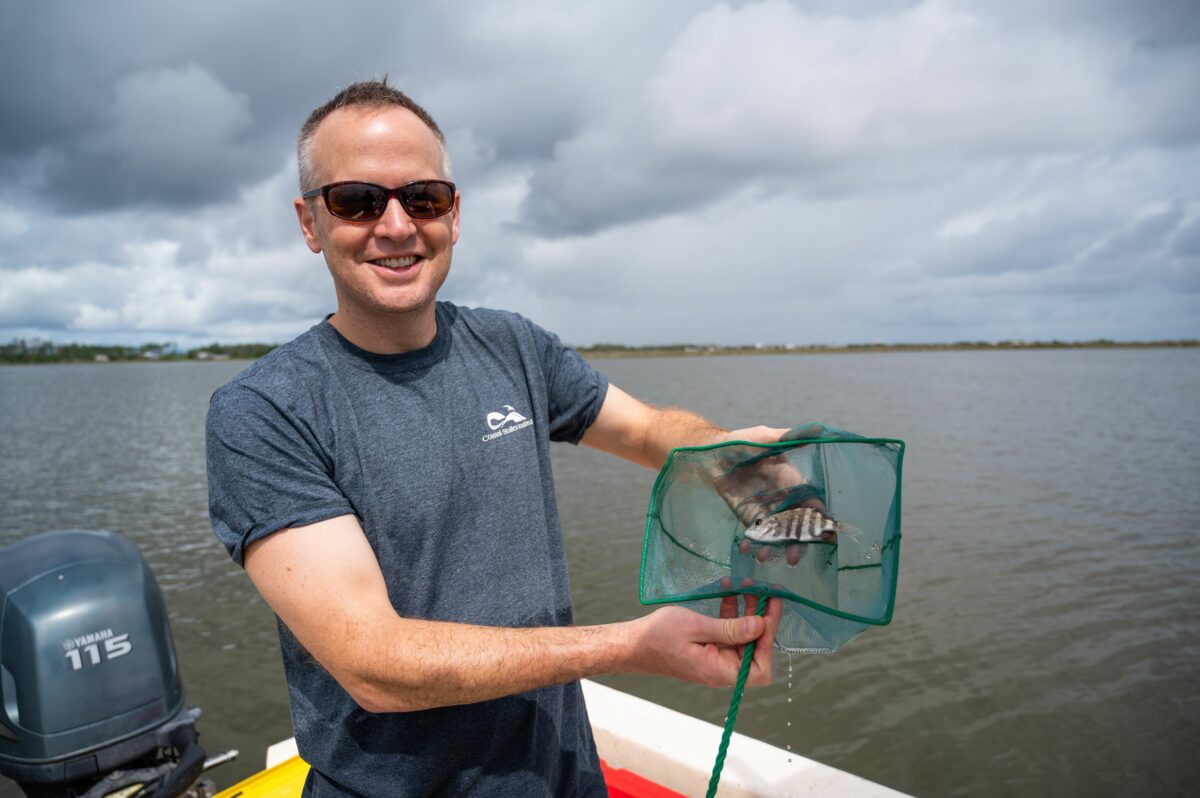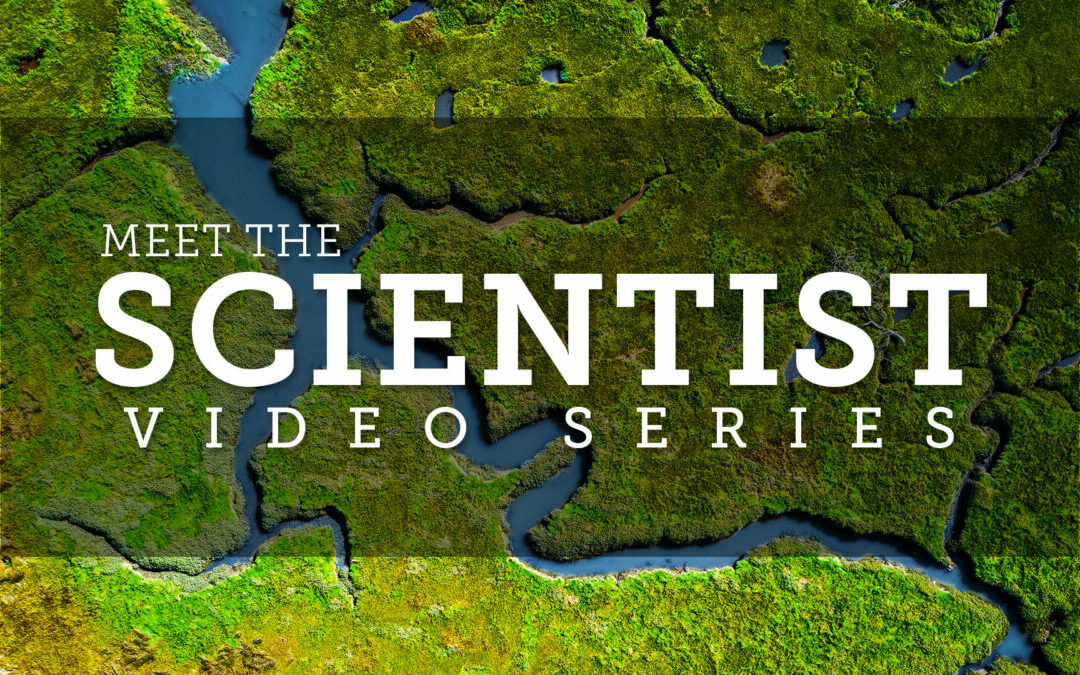Have you ever wondered what it takes to be a scientist? Or are you curious about what research takes place on the ECU Outer Banks Campus? If you answered “YES!” to either of these questions, you should tune in to our monthly, live-streamed video series Meet the Scientist. In each episode, Dean Reide Corbett sits down with ECU and CSI scientists to discuss some of their latest work.

Morley poses for a photo with a juvenile Sheepshead, one of his research project’s target species.
The program is appropriate for all ages and available to the public via our YouTube Channel. View the live-streamed event on Thursday, March 25, 2021, at 6 pm and ask questions through the chatbox. The program will also be recorded and available for later viewing on the YouTube Channel.
More on Morley
Jim is a fisheries ecologist and conducts a mix of modeling and field or laboratory-based research. Ecological modeling studies often use long-term survey data to examine trends in species distribution and abundance. Such models can be used to determine key environmental factors that impact species. In the field, the Morley lab group often combines traditional net and trap sampling approaches with modern technology, including sonar and acoustic tags.
The scope of Jim’s work ranges from local studies that are focused on North Carolina’s resources to studies that encompass the entire North American coast. A central theme is determining how climate variability and long-term change impact marine species and habitats. In addition to climate change, many other human-based stressors impact marine ecosystems and it is important to quantify these impacts so that policymakers have the right tools for decision making.
Tune in Thursday, March 25th, to learn more about the fascinating work of Dr. Jim Morley!



 Based at the Coastal Studies Institute (CSI), the North Carolina Renewable Ocean Energy Program (NCROEP) advances inter-disciplinary marine energy solutions across UNC System partner colleges of engineering at NC State University, UNC Charlotte, and NC A&T University. Click on the links below for more information.
Based at the Coastal Studies Institute (CSI), the North Carolina Renewable Ocean Energy Program (NCROEP) advances inter-disciplinary marine energy solutions across UNC System partner colleges of engineering at NC State University, UNC Charlotte, and NC A&T University. Click on the links below for more information. ECU's Integrated Coastal Programs (ECU ICP) is a leader in coastal and marine research, education, and engagement. ECU ICP includes the Coastal Studies Institute, ECU's Department of Coastal Studies, and ECU Diving and Water Safety.
ECU's Integrated Coastal Programs (ECU ICP) is a leader in coastal and marine research, education, and engagement. ECU ICP includes the Coastal Studies Institute, ECU's Department of Coastal Studies, and ECU Diving and Water Safety. The ECU Outer Banks campus is home to the Coastal Studies Institute.
The ECU Outer Banks campus is home to the Coastal Studies Institute.

